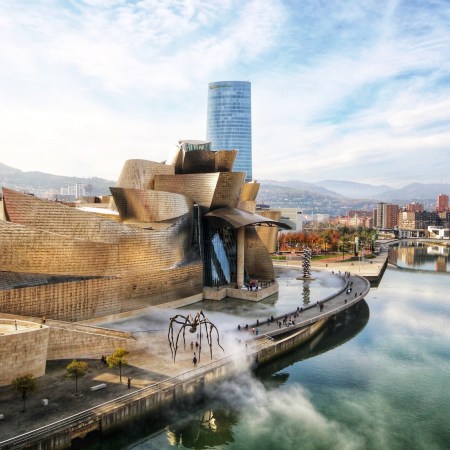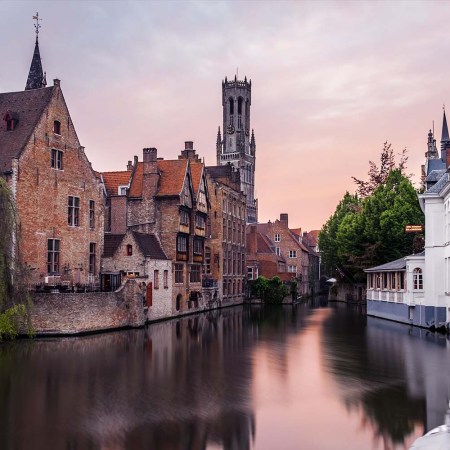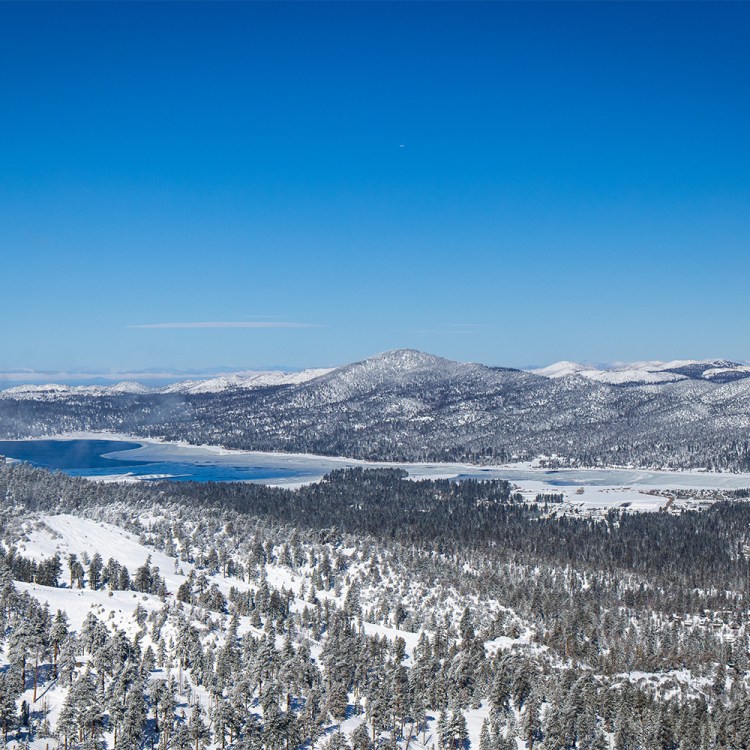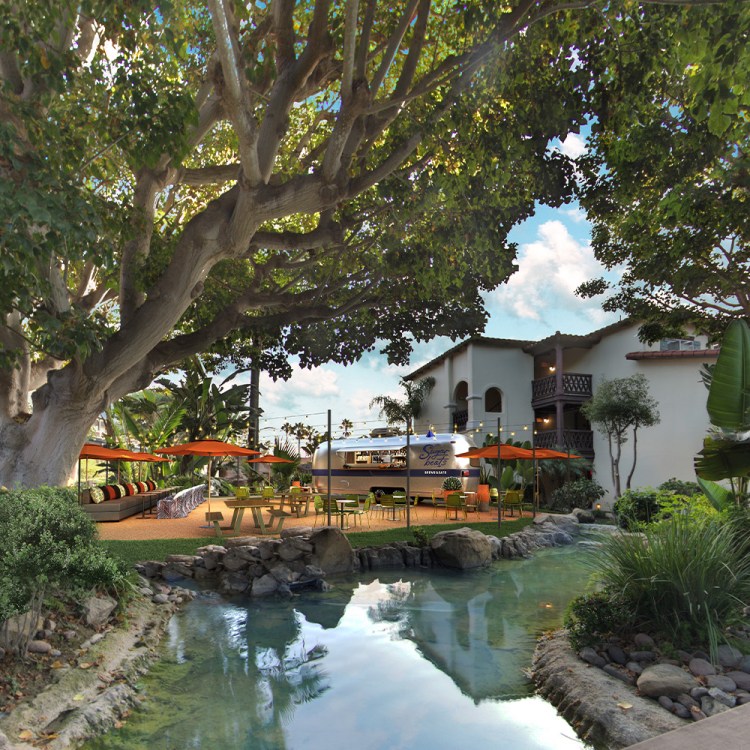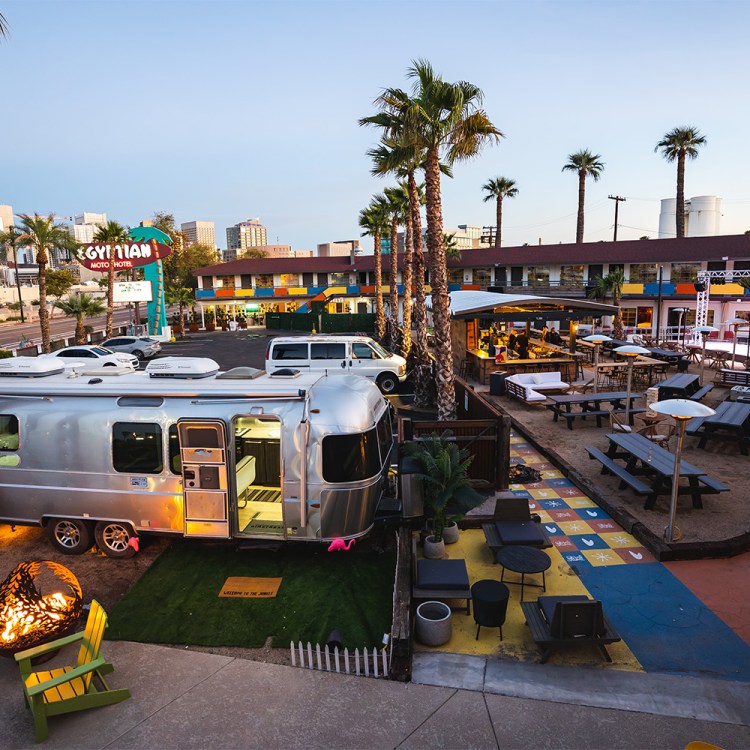Private air travel has solicited its fair share of criticism in recent years as conversations around climate change have grown louder. But given the state of the world — and in particular, the state of travel — over the last year, it’s become exponentially easier to see the appeal of bypassing boarding processes to share a plane with, well, yourself. According to Aero CEO and industry veteran Uma Subramanian, that newfound demand is helping to carve out a new, and perhaps more palatable, sector within the industry: the semi-private flight.
With Aero, which launched last month out of L.A., Subramanian has reimagined air travel. At the intersection of private and commercial, Aero conducts a fleet of aircrafts that are either 16- or 24-seaters and strive to provide a safe, first-class experience (emphasis on experience) to choice destinations out of underserved areas. In effect, they’re aiming to bring excitement and luxury back into flying — two qualities that have largely been absent as companies cut costs to improve their margins.
For her part, Subramanian holds an undergraduate degree in aerospace engineering from the University of Michigan and an MBA from Harvard — aviation is her expertise. Prior to Aero, she was the founding CEO of Voom Flights, a subdivision of Airbus credited with building the world’s first on-demand helicopter network. That experience has left her perfectly positioned to tackle this latest endeavor with the oversight of Uber co-founder Garrett Camp and Expa, the venture firm he now heads up.
We caught up with Subramanian to talk Aero, why they love the L.A. market and the future of leisure travel.

InsideHook: You’ve said previously that you want Aero to be the premier air carrier for the experience economy. Can you elaborate a little more on that and what that entails?
Uma Subramanian: If you kind of harken back to the golden age of travel — in the ‘40s, ‘50s and ‘60s — air travel was part of the experience of going somewhere. It’s [since] become much, much more accessible to a larger segment of the population, but in doing so, it’s lost a lot of its magic. [You] go to an airport, take your shoes off, go through security and have what is really a commoditized experience. [That’s] what we’re trying to fix.
[We] transit through private terminals on a 16-seat aircraft. What’s really funny is that we started this process in 2019, well before COVID, and it turns out we may have built the perfect product for a post-COVID world. [On] our aircraft, the seats are a meter-and-a-half apart already, [they’re] 16-seaters, and we fly direct point to point, so hubs are bypassed. You don’t have to go transit through Dallas Fort Worth if you’re going to Mexico.
Aero is currently offering flights back and forth between Los Angeles and Aspen. Why launch in L.A.?
I think L.A. customers are discerning. They really value experience. And we were looking to go somewhere where the customers are somewhat underserved. L.A. is a really big place and your choices are to fly out of LAX or drive all the way down to Long Beach and fly out of Long Beach, or Orange County, and then Burbank. Those are pretty far apart. If you live in West or Northwest L.A., there’s not a great alternative. So we were looking to serve the L.A. market because we believe that there is a huge customer base, that the customers are underserved, and that we could deliver really great, memorable products.

What is your response to concerns about private air travel and its impact on the environment?
I actually sit on the advisory board of an electric aviation startup. I think a lot about sustainability in aviation. The reality is that it’s a human need to travel, right? And people want to go places. So what we’re trying to do is actually make a meaningful impact on carbon. We’ve partnered with an organization called One Tree Planted, and for every seat sale, we plant five trees. I’m not a big believer in carbon offsets, but I [do] believe in real impact.
We’re also looking at the use of sustainable biofuel. At Van Nuys Airport there is a subsidized bio-Jet A blend that we can use instead of Jet A-1, and we’re working on getting that certified for our engines and our aircraft. We’re also talking to a lot of these electric detail manufacturers.
The reality is that, for a number of technical reasons, electric aviation — particularly for the regional market — is a really long way off. Batteries have to get much better. Right now on the bench, you can get a density of 400 watt hours per kilogram. They need to get to 800-1,000 watt hours per kilogram in order for electric aviation to be scalable and sustainable.
If you look at other kinds of alternative propulsion technologies — whether it’s hydrogen or whether it’s hydroelectric propulsion — they’re all different ranges of 10-15 years off. So the reality is what you have to do is just be better now. Biofuel is, in my mind, the only way to dramatically reduce emissions in the short term. Then eventually as batteries get better — and there’s been an exponential improvement in that technology in the last five years alone — electric aviation gets more viable and people start to build platforms that actually work.
Fundamentally, people are going to travel, so we can offer them a better way to do it. With Aero, we offer a private option that’s not private.
How does semi-private air travel fit into the greater scheme of things, with so many aspects of the existing airline industry badly in need of reform?
I think one of the things that kind of came out of COVID is people realize that life is fundamentally short and there is a real need to have much better experiences. I think there’s going to be a real shift towards the “experience” economy, away from the “consumer” economy. And so I think Aero is a place to play. In the way that there’s room in the market for the Aman Hotels when there are Marriotts in the world, there is space for a better option. I believe that we can deliver a materially better option for the next generation of travelers.
How has COVID forced you to pivot? Do you think it’s served to alter people’s perception of private air travel?
Oh, a hundred percent. We set out in 2019 to build a fleet of aircrafts and we might have built the perfect product: 16- and 24-seat [aircrafts] which fly from private terminals, [serving as] direct links to leisure destinations. If we had been a business-class airline focused on business travel, [and] given what’s happening to business travel in COVID, we would have been in a much worse spot. Given that we set out deliberately to focus on people on their holidays, we’re really excited about the potential for our business.
We’re also thinking a lot about the experience itself. COVID was actually a real boom for our business, but we had to change the experience. Out of L.A. we require COVID tests for all passengers flying to Aspen. We also sanitize and have sanitation carts — we sanitize like crazy. We have sanitation products for passengers. [Though] we didn’t really change the service — we probably would have done a hot meal, but you can’t right now [anyway]. So there’s some of those things that we changed, but, all in all, I actually think that our product just happened to be the right product for this world.

What’s the next step for you? Plans to expand?
Our goal at Aero really is to fly to destinations that we know our customer wants to go. We’ll be looking at other kinds of premium leisure destinations, other mountain destinations: Sun Valley, Jackson Hole. Places in Mexico: Cabo, Cancun. And we’re looking at a broad range of other destinations in and around Europe, so we kind of have a three-pronged approach to this. We’re looking at a broad range of destinations.
What are your predictions in regards to the future of travel at large? Air or otherwise?
Looking at the demand and the inquiries that we’re getting about this summer, travel demand — particularly for leisure — is going to come back with a vengeance. I am more bearish on business travel. We raised our entire financing base from our living rooms, right? From my kitchen.
And so I’m not sure that business travel comes back with the same kind of demand and I’m not convinced that companies are going to mandate that business travel be what it was before. But I do think just the pent-up demand to go somewhere is immense. So you’ll see travel company stocks, particularly recently, have been doing well in the public markets because everyone believes that it’s going to come back, and come back with a vengeance.
The value of flying private is obvious right now, with so many people nervous to travel. What about looking beyond COVID? How do you convert commercial flyers then?
At Aero we’re making a kind of the private air travel experience much more accessible. We compete with first class in terms of price [one-way flights are currently $1,250], but we are a truly premium experience. You get the first-class experience, and we’re here to take you to the destinations that you really want to go. Aero feels like a very specific niche in the market. We’re really focused on making air travel part of the leisure journey, and an amazing part of your experience.
This interview has been edited and condensed for clarity.
For more travel news, tips and inspo, sign up for InsideHook's weekly travel newsletter, The Journey.

